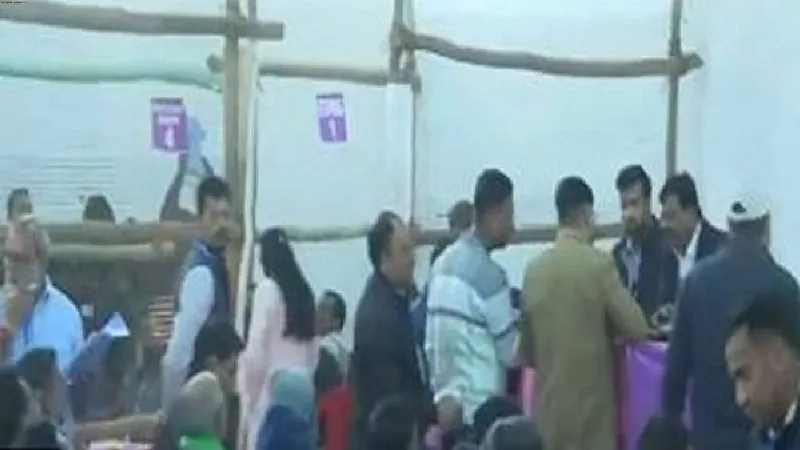Latest News
The Dehradun Declaration at the Sixth World Conference on Disaster Management (WCDM) - 2023
 (8).jpg)
New Delhi: The central theme of this Sixth World Conference has been to strengthen climate resilience and disaster resilience, especially in the context of mountainous geographical systems and communities. This global conference draws inspiration from the Vedic mantra:
"I am the son of Mother Earth, and Mother Earth is sacred to me; the Himalayas are revered."
It reaffirms our commitment as Indians to consider this land sacred and the Himalayas venerable. Our concern for the environment is a dedication and devotion to our Mother Earth, reflecting our reverence and faith.
Central Emphasis
This world conference addresses the challenges faced by the world's youngest mountain system, experiences of local communities, and the dependence on these systems for daily life. The Himalayas serve as a vivid example of ongoing environmental crises, disasters, and global challenges arising from climate change. Active participation of balanced systems and communities plays a crucial role in coping with dangers, risks, and disasters. The conference proposes action plans that prioritize implementation based on urgency not only for all Himalayan states but also for other related areas.
Context of Implementation
Enhancing disaster resilience (resilience) preparedness
It is crucial to specifically prepare the youth of the border areas of mountainous states for disaster management. Ensuring the continuous monitoring and evaluation of dynamic projects and creating a conducive environment for this purpose is particularly essential.
Empowering Mountain Communities
- Educating communities about specific risks they face and preparing them to deal with disasters is necessary.
- A broad understanding of environmental science and community participation is essential for better disaster awareness and for utilizing traditional knowledge and local language-culture on a large scale.
- In order to reduce dependence on vulnerable areas, it is vital to strengthen livelihoods and livelihood systems, ensuring their diversity. Additionally, preparing for and ensuring prompt response and restoration are essential.
- Establishing networks and partnerships between communities, self-help groups, government and non-governmental organizations, and other stakeholders is necessary to enhance support for disaster-resistant arrangements.
Support for Policy Integration
- Support is needed for policies and systems that focus on the vulnerabilities of disaster risk and strengthen disaster resistance over time. Establishing a modern 'Disaster Management Institute' in the state that focuses on policies and initiatives for the resilience of disaster risk in the Himalayas is particularly necessary.
- This institute should be set up on a mission mode to develop knowledge, databases, and information systems for preparing suitable policies and strategies for disaster risk resilience.
- Ensuring the readiness of all components of sustainable environmental systems, secure environments, and health services during emergency situations and pandemics in the Himalayas is crucial.
Commitment to Innovation
- Contributing to a well-prepared society for disaster resistance requires contributing to new perspectives, methods, systems, and tools in entrepreneurship and innovation. Encouraging investment in start-ups and entrepreneurship in developing new tools and applications for disaster resistance and risk prediction in emergency situations and disasters in the Himalayas.
In his address, Lieutenant General (Retired) Shri Gurmeet Singh, the Chief Guest and Governor of Uttarakhand, emphasized the significance of the conference in addressing challenges posed by natural disasters globally. He highlighted the collaborative efforts of scientists and specialists from more than 70 countries in devising strategies to mitigate the impact of disasters. The Governor expressed confidence that the knowledge gained from this conference would benefit nations worldwide facing various calamities.
Shri Kiren Rijiju, Union Minister, Ministry of Earth Sciences said policymakers should be sensitised to the need for disaster risk reduction and resilience, given the increasing frequency and intensity of natural calamities. This underscores the urgency for robust policies and collaborative efforts to fortify disaster management and resilience strategies, particularly in the vulnerable Himalayan region. The participants and organizers of the Sixth World Conference are firmly committed to relentless efforts towards the direction of a well-organized and secure future, contributing to global efforts for the resolution of the Himalayan and mountainous community's flexible and sustainable direction.





















